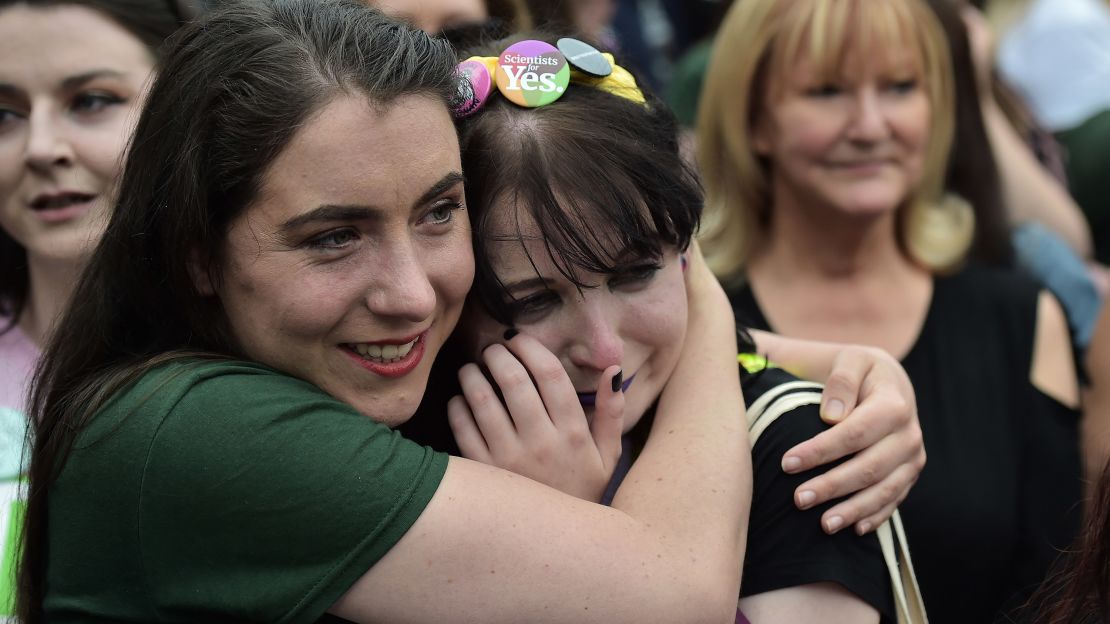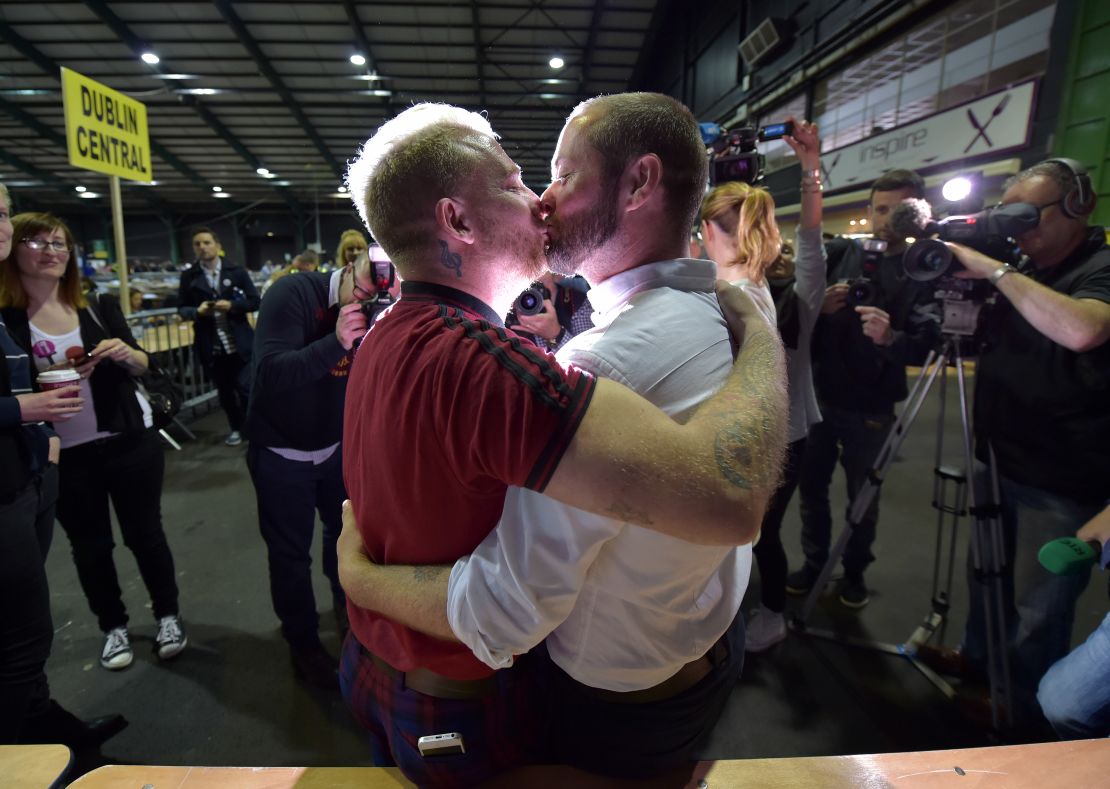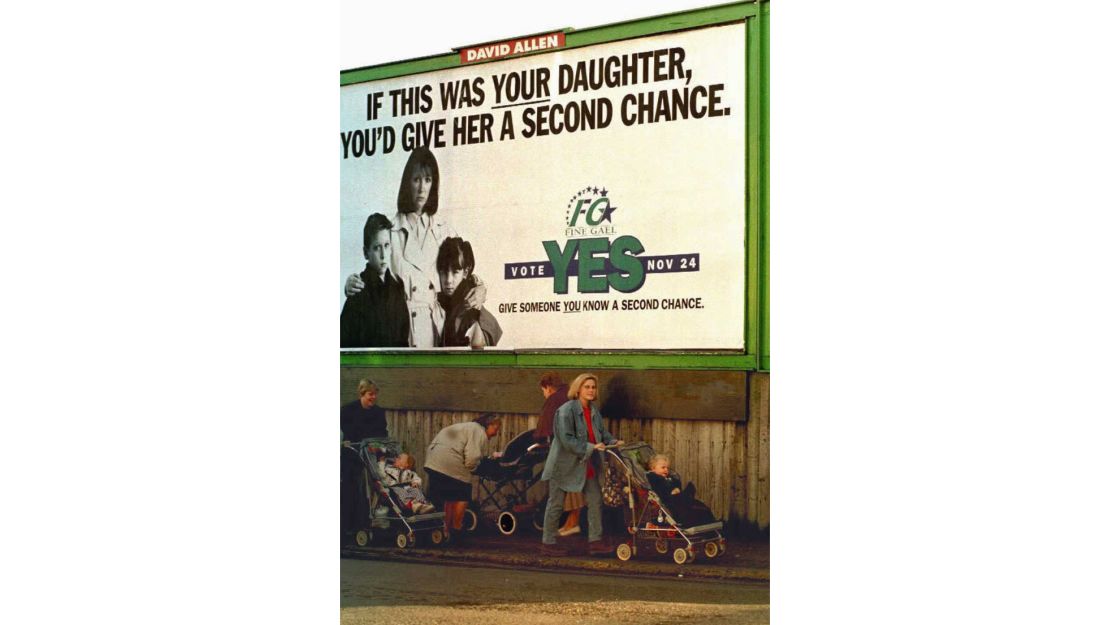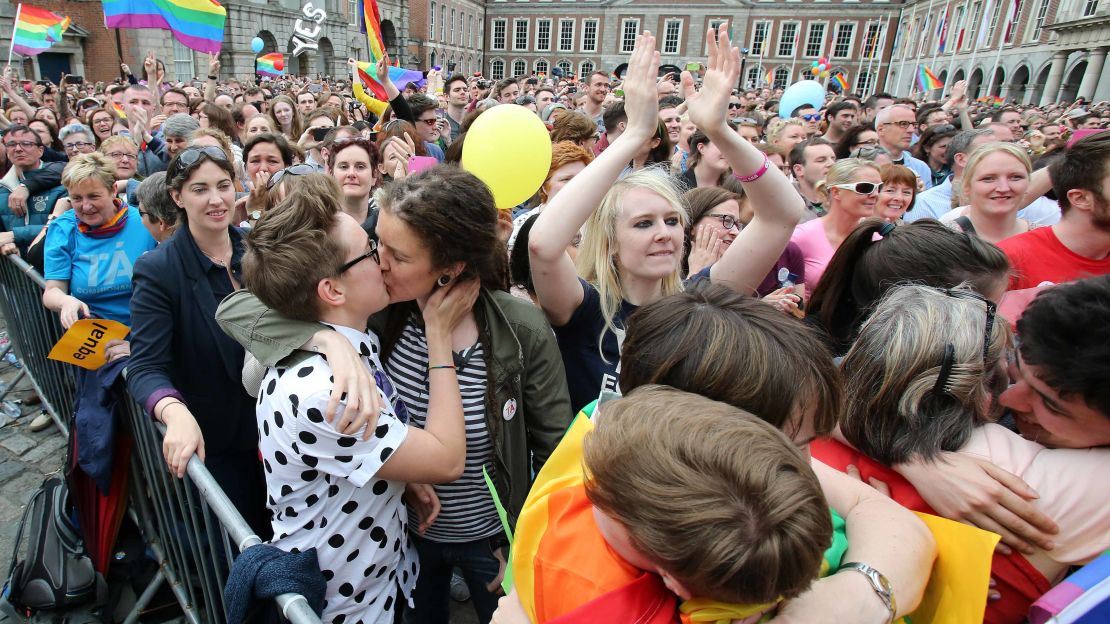Three decades ago, Ireland was a very different place. Divorce was illegal, as was same-sex marriage. Abortion, already illegal in practice, was constitutionally banned in a 1983 referendum – known as the Eighth Amendment.
On Saturday Ireland emphatically voted to repeal that constitutional amendment in a referendum, paving the way for legalized abortion.
“If you look at 1983, when the anti-abortion clause was put into the constitution, to now, the change is just extraordinary,” said Irish Times columnist Fintan O’Toole.
He said the diminishing influence of the Catholic church, along with the urbanization of a rural society, improved access to higher education, and an increasingly vocal women’s movement, had all contributed to a shift in perceptions.
Saturday’s referendum is the latest in a series of recent liberalizations in Ireland, which last year elected its first gay and biracial Prime Minister, or Taoiseach, Leo Varadkar.
“Thirty years ago if you had said there was any possibility the prime minister would be gay or from a biracial background, people probably would have found that just impossible to imagine,” O’Toole said.
“And now it’s not just possible to imagine, it’s almost uninteresting, it’s just taken for granted.”
Here’s a look at some of Ireland’s legislation in recent years:
2018: Referendum paves way for legalized abortion

Saturday’s referendum, in which 66.4% of voters said yes to repealing the Eighth Amendment to the constitution, opens the doors to legislation allowing abortion up to 12 weeks gestation – and later in cases in which there is a risk to the mother’s life or the fetus is not expected to survive.
Only one county voted no in the referendum – the rural and religiously conservative Donegal in northwest Ireland.
Up until now abortion has been illegal in Ireland – except when there’s a “real and substantial risk” to the mother’s life – with women caught breaking the law facing up to 14 years in jail.
2015: Same-sex marriage legalized

On May 22, 2015, Ireland became the first country to legalize same-sex marriage through a popular vote, with over 60% voting yes in a referendum.
The measure was legalized on November 16 that year.
1996: Divorce legalized

In 1995 a referendum on legalizing divorce was passed – just. The final tally showed 50.3% were in favor of ending Ireland’s 58-year-old ban on divorce, with 49.7% opposed to the change.
The measure was signed into law on June 17, 1996.
1993: Homosexual acts decriminalized

Ireland has seen a huge change in LGBT rights. As recently as 1992, marchers in a gay pride parade in Cork reportedly wore masks so as not to embarrass family members.
The following year, consensual homosexual acts between adults were decriminalized. Today, same-sex marriage is legal, and the country’s leader is openly gay.
1979: Contraceptives legalized
Contraception was legalized in 1979, but with tight restrictions. Doctors needed to write prescriptions after being “satisfied that the person was seeking the contraceptives for bona fide family planning purposes,” according to the Irish Family Planning Association.
However the reality was quite different, as O’Toole recounts. “I was a student in the 1970s and we were distributing condoms through the student union at the university,” he said.
“In one case, police seized a condom-dispensing machine at the university. So all of that kind of stuff was going on. The law didn’t really change behavior that much,” O’Toole added.
Much like the thousands of Irish women who each year travel to the UK for an abortion, it seems Irish people have long found ways to get around legislation.
“What you’re seeing now is this culmination of a very long divergence between actual behavior, and the law,” said O’Toole.


















